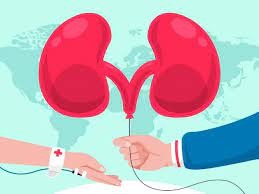Patients’ Association Calls for Law Allowing Kidney Donation from Deceased Individuals in Ethiopia
The Kidney Patients’ Association has urged Ethiopian lawmakers to pass legislation that would permit the donation of kidneys from deceased individuals, a proposal that has been in limbo for the past six years.
Despite a draft bill being prepared to address this issue, no significant progress has been made, leaving many patients waiting for a legal framework to support such transplants.
Ethiopia’s current health law restricts kidney donations to family members, a limitation that creates significant challenges for patients in need of kidney transplants.
The general manager of the Kidney Patients’ Association, Solomon Asefa, highlighted that a draft law to amend this policy and allow kidney donations from deceased individuals has been in discussion for years but has yet to be presented to the House of Representatives.
Solomon noted that while there have been ongoing requests to establish a legal framework for deceased kidney donations, there has been no clear response or timeline for the bill’s presentation to lawmakers.
He emphasized that relying solely on family donations often results in transplant complications due to donor mismatches or other medical issues, making the need for broader organ donation policies even more urgent.
In comparison, eyeball donations in Ethiopia are permitted based on an individual’s consent upon death, and Solomon believes a similar approach should be adopted for kidney donations.
He stressed that implementing such a law would not only improve transplant success rates but also alleviate the shortage of available kidneys for patients in need.
Ethiopia had made progress in providing kidney transplant services. St. Paul’s Hospital began offering kidney transplants at the end of 2016, and under the leadership of Dr. Momina Ahmed, the hospital achieved remarkable success, completing 17 successful transplants in its first year.
By the time the program was halted due to the COVID-19 pandemic in 2019, the hospital had performed a total of 102 kidney transplants for Ethiopian patients.
Unfortunately, the program has not resumed since the pandemic, partly due to the departure of skilled professionals.
Dr. Birhanu Worku, a kidney specialist at St. Paul’s Hospital, explained in an interview that current regulations only allow kidney donations from relatives to prevent illegal organ trafficking.
This policy, while aiming to protect against organ sales, severely limits the availability of life-saving kidneys for those in need.
The Ministry of Health has yet to comment on the status of the kidney donation bill.
However, last week, the Ministry submitted a draft law to the House of Representatives that would allow sperm donation and provide IVF (in vitro fertilization) treatment for infertile couples, indicating a growing interest in expanding medical treatment options for Ethiopian citizens.
The Kidney Patients’ Association continues to advocate for a legal change that would permit kidney donations from deceased individuals, which could significantly improve the survival chances of patients suffering from kidney failure and reduce the dependence on limited family donations.
